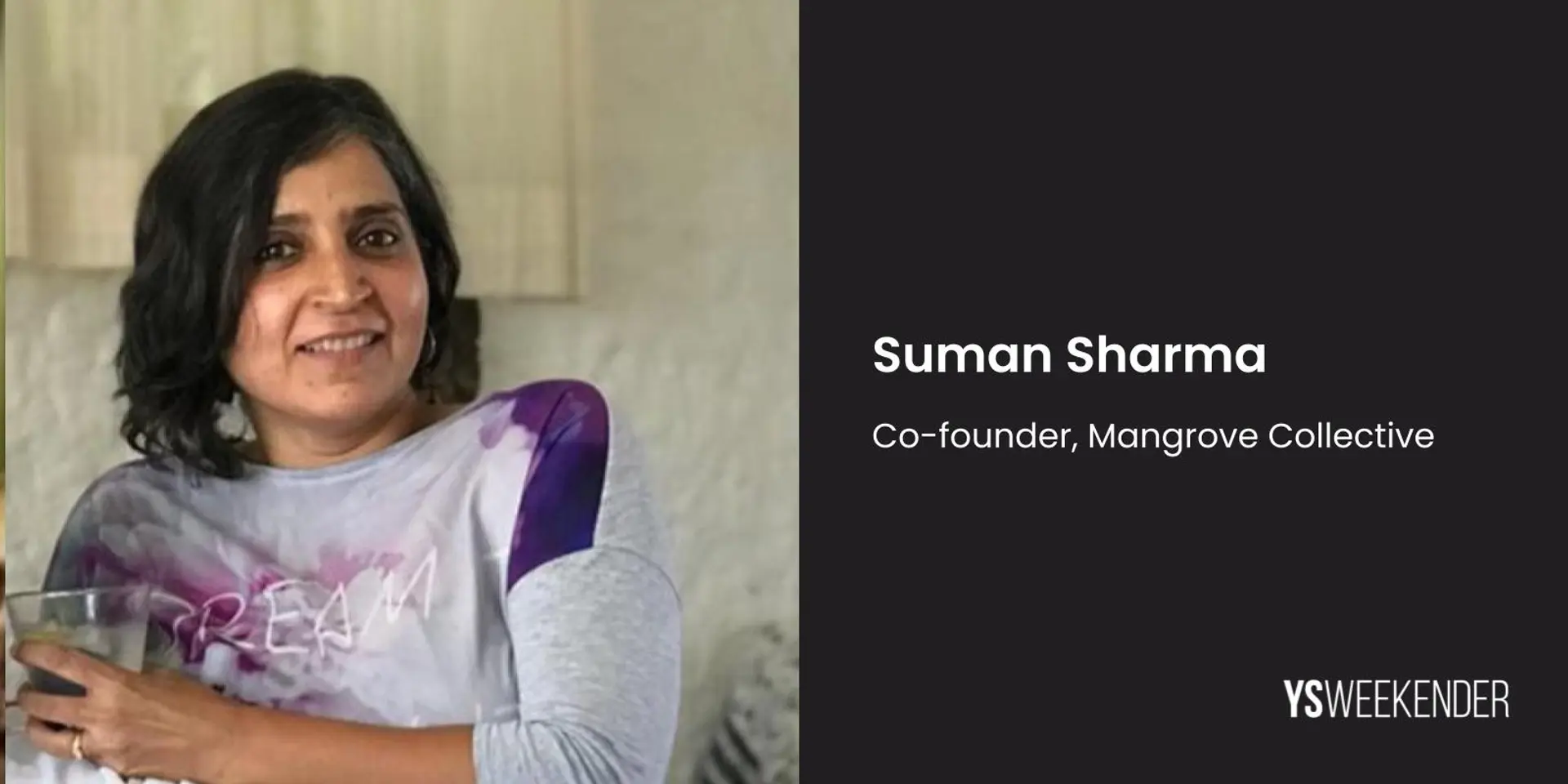This bespoke furniture brand combines traditional craftsmanship with modern designs
Delhi-based bespoke furniture design firm Mangrove Collective’s team of traditional artisans and furniture designers works in tandem with clients to achieve personalisation and ensure form over function.
Ask anyone setting up their own homes, and they will assure you that furniture is what makes the space come alive. And if the furniture in question is custom-made by adopting a conscious process celebrating local resources and rich traditional craftsmanship, it certainly has widespread appeal.
Delhi-based firm , described as a ‘design and build studio’, is an apt example.
“At Mangrove Collective, we have created a space where designers, craftsmen, and clients are equal partners. We are constantly challenging ourselves to look at products and processes in a new way - by combining traditional craftsmanship with state-of-the-art technology.
"We feel luxury sans craftsmanship is mere vanity, and our products are designed with impeccable attention to detail and bring joy to whichever space they inhabit,” shares Suman Sharma, Co-founder, Principal, and Head of Business, in a chat with YS Weekender.
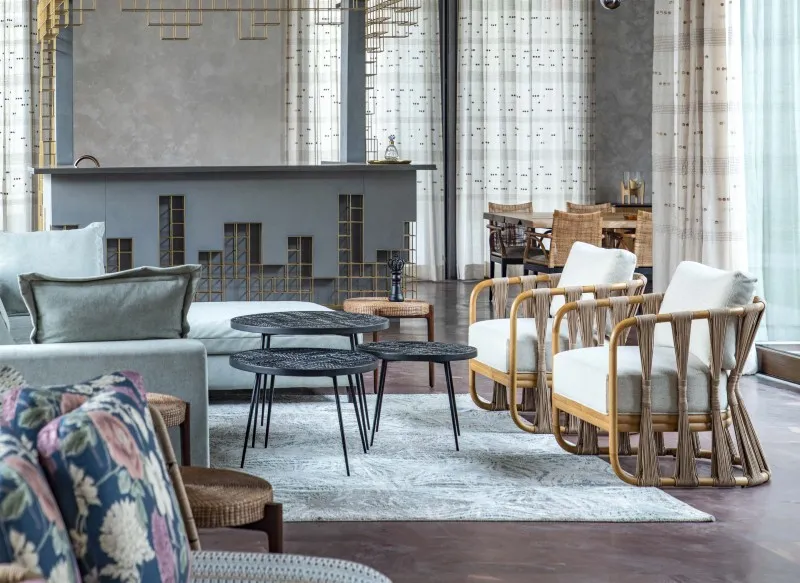
The collaboration between the client, designer, artisans, and makers is Mangrove Collective’s biggest asset, as it creates an environment that prioritises comfort over symbolism.
The idea
Born and raised in Delhi, Suman grew up in a Lutyens-era neighbourhood and was heavily influenced by its colonial architecture adorned with tall ceilings, fireplaces, and verandas. She pursued her master’s in furniture design from the National Institute of Design (NID), Ahmedabad, and then went on to work and train in the interior design industry for a couple of years. Her fascination with space and form was also inspired by her father’s work and practice as a photographer.
Over the years, she acquired valuable exposure working with leading lifestyle brands such as Good Earth, Samir Wheaton Design, and Krea, where she served as the Creative Head and helped set up the retail division.
She also had her own entrepreneurial ventures such as Viva Design, through which she exported furniture, and Sotomoto, which retailed a range of kids’ furniture and lifestyle accessories. Apart from her other engagements, she is also an academician who has taught at the Pearl Academy, New Delhi, and other places as a visiting faculty member.
She says, “The seeds of Mangrove Collective were planted many years ago by our sister firm, the multidisciplinary architecture and design practice, Studio Lotus. It was quite a challenge for the studio to translate design concepts into reality. It’s easy to find people who specialise in a particular material like wood or metal, but it’s not easy to strike a balance between multiple materials and the assimilation of regional craftsmanship. And so, we decided to form this collective that offers a platform to local artisans to work with local resources and utilise their rich traditional knowledge and expertise.”
The Mangrove Collective began as a collaborative design studio in 2015 and has evolved into a large team of highly skilled craftsmen and designers. Clients are also actively involved in the personalisation of their furniture, as they are welcomed into the studio workspace, which is open and transparent.
The team at Mangrove Collective believe their product is an offering to the world – one that adds value and establishes an emotional connect with people. Each commissioned piece is a synthesis of craftsmanship and technology and is made with all-natural materials. The timeframe of their product-making process depends on its complexity. A bespoke piece of furniture roughly takes between 12 and 16 weeks to complete.
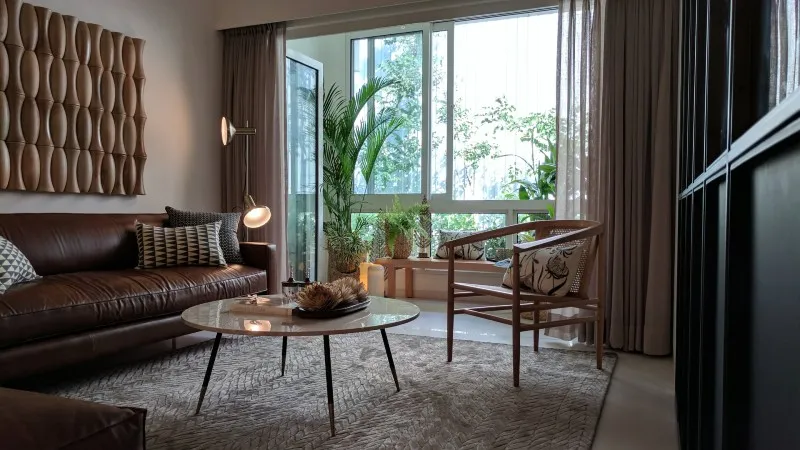
At Mangrove Collective, traditional artisans and furniture designers work with clients to achieve personalisation and create beautiful spaces.
The USP
“The strength of our products lies in their durability and versatility that transcends any passing trends. Our bespoke, artisan-focused work is augmented by our expertise in multiple materials and a collaborative approach to design. This approach ensures that the products are unique and meet client requirements,” Suman explains.
The collaboration between the client, designer, artisans, and makers is Mangrove Collective’s biggest asset, as it creates an environment that prioritises comfort over symbolism and functionality over form.
At Mangrove Collective, stress is laid on striking a balance between ergonomics, joinery details, functionality, and aesthetics.
Suman believes the active engagement between the design studio and the shop floor sets them apart from their competitors. Another thing unique to their firm is the natural synergy between their furniture designers and artisans, which facilitates the creation of products with a high degree of finesse and refinement.
“Each product for us is a journey where all stakeholders — the craftsmen, the designers, the technician, and the consumers — have a takeaway, a memory that lasts a lifetime. With every product and commission, we try to feed into the vision and aspirations of the user,” Suman says.
As a bespoke furniture studio, their work is mainly made-to-order. However, they have an experience centre in their design studio located in Faridabad in Delhi-NCR, where clients can visit and enjoy a hands-on experience of their products. They have executed projects in Mauritius, Dubai, London and other places and ship internationally as well.
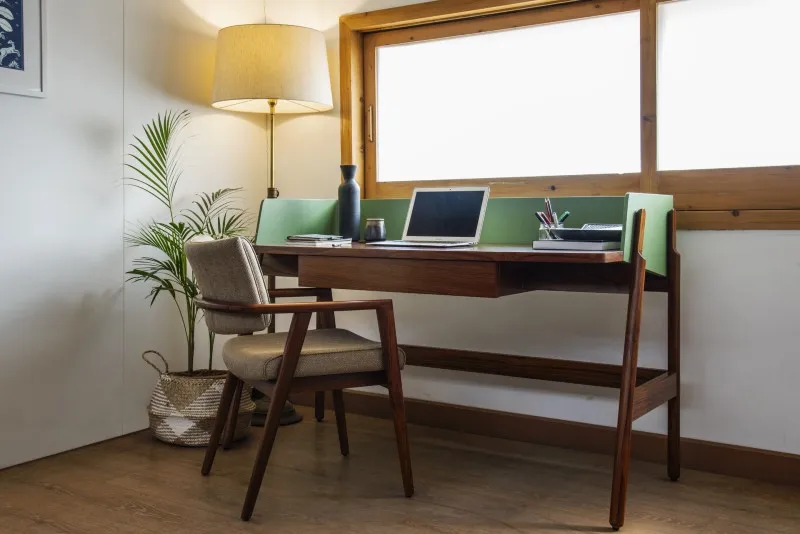
Mangrove Collective aims to offer products designed with 'impeccable attention to detail' to 'bring joy' to all spaces.
The growth
According to data by techsciresearch.com, the Indian furniture market stood at $21 billion in 2018 and is projected to grow to over $31 billion by 2024, exhibiting a CAGR of around 7 percent during the financial years 2019-2024, on account of the growing real estate and hospitality industries. This steady growth was further spurred by the pandemic.
Suman shares, “The pandemic-induced lockdown and subsequent supply chain disruptions compelled homeowners to look at local brands capable of producing furniture of an international standard. The level of customisation a homegrown furniture brand can offer is unparalleled.
"A renewed appreciation for local artisanal skills has aided furniture brands to incorporate age-old craft forms into furniture and give them a new meaning in this era. As more people learn the benefits of adopting a conscious and sustainable way of life, it is also incumbent on furniture brands to rethink their processes.”
The brand’s philosophy and vision led to them winning the EDIDA Designer of the Year award at ELLE Décor Design awards in 2018. They were also shortlisted as a finalist in the Lexus Design Awards India.
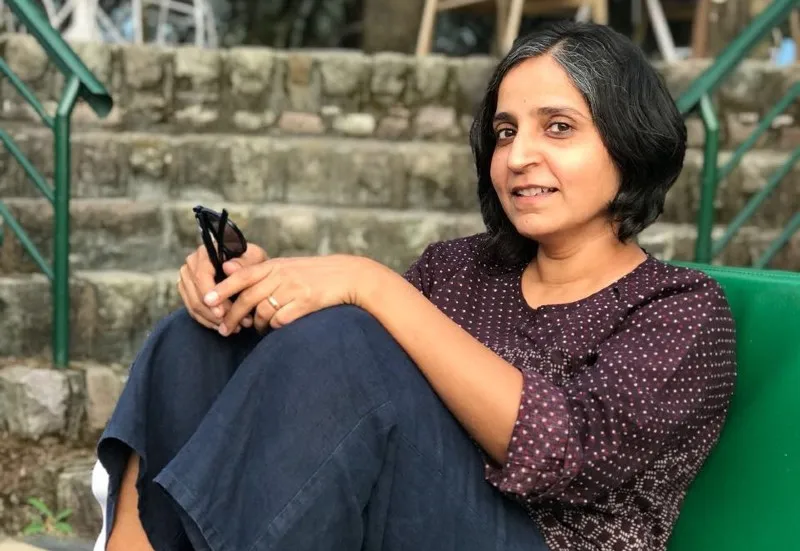
Suman Sharma, Co-founder and Principal, Mangrove Collective, says the firm has made designers, craftsmen, and clients equal partners.
When asked about the change in buying habits of their customers post-pandemic, Suman shares, “Space optimisation has been a top priority during the lockdown, and homeowners have spent a considerable amount of time sprucing up nooks and corners, creating spaces for rest, rejuvenation, and recreation. With specific regard to living areas, we have observed a massive demand for sofas and lounge chairs that strike a fine balance between ergonomics and durability. People are looking inwards to develop private spaces as a canvas for self-expression.
"The fact that less is more, with the notion of luxury moving from glamorous, statement-making objects towards embracing local crafts and artisanal products, has many takers today and underscores our vision for the future as well.”
Suman highlights that homeowners have become increasingly aware of the importance of embracing more mindful and sustainable lifestyles. To that end, they are looking for brands that align with their values and thinking, making the future of Mangrove Collective appear bright.
Edited by Teja Lele


